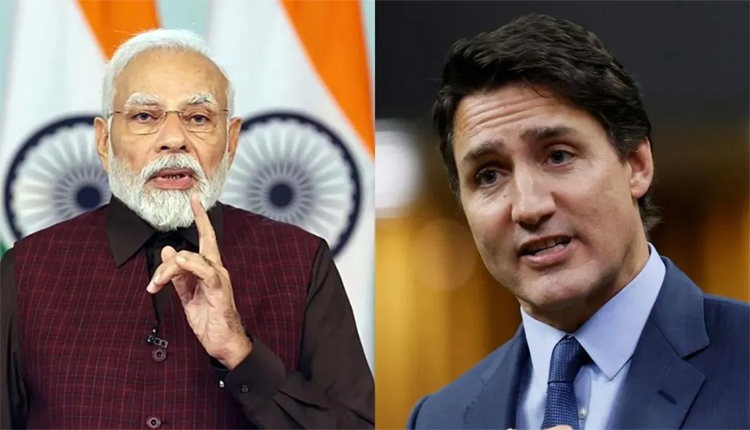Brampton, Ontario: In a dramatic escalation of diplomatic tensions between Canada and India, recent events have revealed deep-seated divisions stemming from allegations surrounding the assassination of Khalistani leader Hardeep Singh Nijjar. The incident has drawn considerable media attention and sparked widespread public concern, particularly within the Indian community in Canada.
On October 14, a significant cultural event took place at the Hindu Sabha Temple in Brampton, where a Ravan Dahan ceremony attracted a large crowd, including both Hindu and Sikh attendees. The event featured a competition where children were encouraged to recite the Hanuman Chalisa, a devotional hymn. Remarkably, it was a Sikh child who won the competition, showcasing the camaraderie between the two communities despite the backdrop of growing political tensions.
However, the celebration was overshadowed by Canadian Prime Minister Justin Trudeau’s allegations that Indian diplomats, including High Commissioner Sanjay Kumar Verma, were involved in Nijjar’s murder. This assertion has been met with fierce denial from India, prompting the Indian Ministry of External Affairs to summon the Canadian Deputy High Commissioner, Stewart Wheeler, to reject the accusations categorically. The fallout from these claims resulted in India ordering Wheeler and six other Canadian diplomats to leave the country by October 19, underscoring the seriousness of the situation.
Relations between India and Canada are currently at their lowest point in decades. The escalating conflict stems from Trudeau’s claims that the Canadian police were investigating India’s possible involvement in Nijjar’s assassination, which occurred in June 2023 in Vancouver. Nijjar, a prominent advocate for an independent Sikh state, was shot outside a gurdwara, and his murder has since become a contentious issue in Canada-India relations.
In the wake of these tensions, Trudeau’s government faces multiple challenges, including rising inflation and unemployment, which have led to a decline in his popularity. His recent diplomatic missteps and strained relationships with Indian officials have further complicated his position, especially as he navigates a minority government reliant on support from the New Democratic Party, led by Jagmeet Singh, a Canadian of Indian descent who has often criticized India’s policies.
As the investigation into Nijjar’s murder continues, Trudeau’s administration has been urged to provide concrete evidence to substantiate its claims against India. Meanwhile, Canada’s shared intelligence network, Five Eyes, has also alleged involvement from Indian intelligence agencies, adding another layer to the ongoing crisis.
This latest chapter in Canada-India relations raises significant concerns for the Indian diaspora in Canada, particularly as both governments grapple with national interests and public opinion. With upcoming elections in 2025, Trudeau’s administration may be seeking to consolidate support from the Sikh community, which represents a critical voter base in Canada.
As tensions simmer, the implications for diplomatic relations remain uncertain, with many watching closely to see how both nations will navigate this increasingly complex situation. The fate of the Indian community in Canada hangs in the balance as leaders from both sides attempt to de-escalate the crisis while addressing their respective domestic challenges.



Comments are closed.